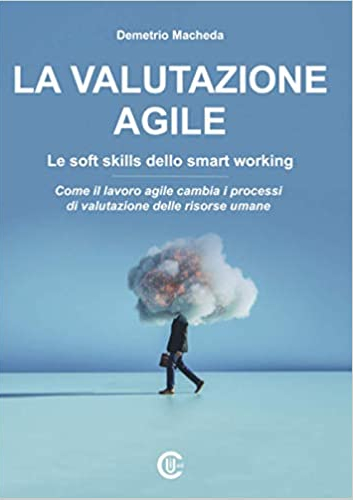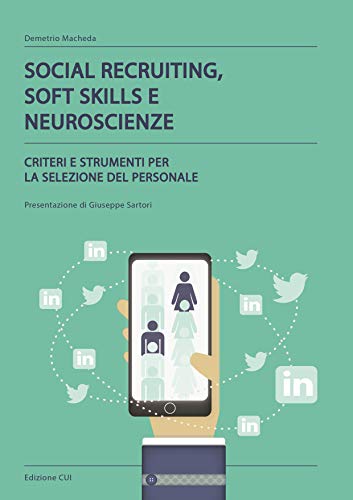What are Soft Skills
Fundamental transversal skills at work
Soft Skills are transversal skills derived from personal and environmental factors, depending on whether the place is work, school or a personal relationship.
They are therefore personal skills and traits one does not acquire like technical skills but learns tacitly, that is, without the subject being aware of their influence in determining behaviors and choices. They are essential for individuals and groups to express their full potential because they allow people to be profitable or create profitable relationships at work, at school and in their personal lives. All people have Soft Skills and these skills can be understood, evaluated and enhanced with the appropriate methods.
SOFT SKILLS AND HARD SKILLS
Hard Skills and Soft Skills are complementary because the former are the technical skills that one can acquire through work experience, study courses, training (often to impart knowledge) and practice. They are skills that are normally assessed through assignments, tests, certificates of level of studies or portfolio of work. Such skills include using software (graphics, customer relationship management, analysis and reporting) and the ability to understand and speak foreign languages.
The second category of skills, Soft Skills, differs from Hard Skills because they are the result of personal factors (the subject’s personality traits) and experience, often learned implicitly.
Which are the Soft Skills
From the 5 personality traits of the Big Five model to the 5 categories of Soft Skills
According to the theory of the Big Five or five factors by Robert R. McCrae and Paul T. Costa (1997), personality traits are divided into five major factors:
![]() Extroversion
Extroversion
![]() Agreeableness
Agreeableness
![]() Conscientiousness
Conscientiousness
![]() Emotional Stability
Emotional Stability
![]() Openness to experience
Openness to experience
For each factor, there are facets (6 for each factor) that are called sub-factors, which are often responsible for specific behaviors that are difficult to capture only with the large factor.
For example, a person may tend to be extroverted (high level of the factor) but at the same time be rather cautious in their selection of things to do (with a low level of the sub-factor Stimulation seeking). It is very difficult for evaluators who face an extroverted subject during the evaluation phase to predict their behavior because in the workplace, they may prove to be a person who is not very willing to take initiative. Personality questionnaires address this difficulty by providing detailed information that helps explain the nature of the subject’s behavior
FROM BIG FIVE TO SOFT SKILLS AT WORK
The 5 factors and 30 sub-factors of the personality traits of the Five Factors model can be used to determine how a person is likely to behave in the workplace and hence what Soft Skills they possess.
The Skill View® questionnaire used in Original Skills, which is a variant of the five factors model for the work context, identifies each of the personality sub-factors responsible for behaviors in the work context in terms of transversal skills.
The factors and sub-factors of the Big Five model identify the presence of 35 Soft Skills belonging to 5 categories (listed in the following table):
![]() Personal competences
Personal competences
![]() Realization competences
Realization competences
![]() Social competences
Social competences
![]() Competences of infuence
Competences of infuence
![]() Managerial Competences
Managerial Competences
THE LIST OF SOFT SKILLS
| Personal competences | Realization competences | Social competences | Competences of infuence | Managerial Competences |
|---|---|---|---|---|
| Work altruism | Attention to details | Cooperation | Communication | Decision Making |
| Self-control | Achievement of objectives | Customer Experience | Influence and persuasion | Delegation |
| Autonomy | Control | Client orientation | Leadership | Direction |
| Self-confidence | Managing information | Social orientation | Analytical thinking | |
| Flexibility/Adaptability | Results/effort | Sensitiveness to Relationships | Planning and organisation | |
| Dedication to work | Spirit of initiative | Problem Solving | ||
| Innovation | Strategy | |||
| Emotional intelligence | Team Work | |||
| Motivation and personal effectiveness | ||||
| Persistence | ||||
| Precision and discipline | ||||
| Resistance to stress | ||||
| Training Sensibility |
EXAMPLES OF SOFT SKILLS
The sub-factors of the Skill View® model can be considered pieces of a puzzle that when combined give rise to the complete picture of the Soft Skills that determine the subject’s behavior.
Examples of soft skills validated in the Skill View® model are
Self-confidence
Self-confidence is the awareness of one’s own worth and abilities. This awareness involves the assumption of increasing responsibilities within the organization.
Cooperation
The ability to cooperate indicates the person’s desire to work together with others and to organize and distribute the work according to their skills and professional interests to achieve a common goal. The ability to cooperate with others implies the desire to communicate transparently and to collaborate and interact by understanding each other’s positions with respect to a problem or work activity. A high degree of cooperation could allow a person to learn new things, enter new fields of activity and specialize in tasks other than their own. A person’s low propensity for cooperation could signal their tendency to concentrate on their own activities and mainly use their own knowledge.
Self-control
Self-control is the ability to identify and monitor one’s feelings and emotions appropriately. A person capable of self-control easily tolerates conflicting and / or undefined situations and maintains stable behavior, even in times of difficulty. For example, the ability to calm down, recover from anxiety or sadness, etc. indicates a subject is aware of their emotional state and can recognize, master and direct his emotions. Knowing how to read one’s emotions and recognize their impact in ordinary and work activities allows one, on the other hand, to use intuition and “gut” sensations to orientate oneself in decisions.
Each of these soft skills (the Skill View® model has 35 standardized, but hundreds can be structured) is then translated into 4 levels of probable behavior of the subject (low, medium-low, medium-high and high).
TRAINING SOFT SKILLS: AN EXAMPLE
People who are not punctual but who work in organizational contexts that require punctuality often tend to be punctual. This soft skill (punctuality affects, for example, respect for deadlines in the delivery of assigned tasks) can be identified and trained. To what extent can the non-punctual subject improve? It depends on the working context (if, for example, there are mandatory deadlines for deliveries) and personal commitment.
But how do you know if a subject will be punctual in deliveries?
To evaluate punctuality and other Soft Skills, we need to refer to tools capable of capturing personal characteristics that often remain hidden from the observer’s external gaze and are partially known by the subject himself.
How to evaluate Skills scientifically
Original Skills is a totally digital innovative system
Original Skills is an innovative system for the evaluation of Soft Skills. It is the first totally digital system of scientific analysis of Soft Skills adaptable to the needs of any type of organization, private or public.
The Original Skills Skill View® Questionnaire (120 questions that take about 10-12 minutes to complete), created in compliance with current scientific theories and psychometric calculation according to the standards of the American Psychological Association (APA), is valid and reliable. The sample of the questionnaire’s statistical norms is based on 67,000 controlled tests in the workplace.
The test is updated with psychological research results and those provided by cognitive neuroscience.
Soft Skills at work
For companies, it is essential to know how to recognize and evaluate them
Soft Skills are related to work performance. Precisely for this reason, at work, reference is increasingly made to soft skills, which are vital to achieving optimal performance. There is a circularity between personal factors and performance: a behavior can help one achieve greater performance and predict a person’s behavior. The related soft skill must be assessed (for example, soft communication skills, which salespeople greatly desire).
But if one learns Soft Skills tacitly, the assessment is often only intuitive. The experts in the assessment phase are only able to hypothesize the personality traits, that is, whether the person is predominantly friendly, assertive (the sales manager tends to communicate well) or withdrawn, cold or passive (the sales manager tends to communicate little and with little effectiveness).
Therefore, it is essential for companies to understand which Soft Skills are necessary for the roles covered to reach the expected performance levels, and they must objectively measure transversal skills to ensure that the selection of personnel is appropriate.
Companies derive the greatest benefits from having adequate Soft Skills of employees, with the same knowledge and Hard Skills. When one looks for a collaborator, however, they must refer to a job position, to a needed role, for which necessary soft skills vary based on role or position held. A production worker in the manufacturing industry must have the soft skills typical for a worker. For example, delegation skills cannot be required from a worker. If anything, soft skills related to teamwork or delegation would be required of an aspiring manager of chief.
Today, an increasing number of people include their Soft Skills in their resumes, assuming that this description can help companies determine whether candidates would be suitable for the role and context in the company.
However, and this is true for every person, it is difficult to establish independently how well one can work in a team, with persistence, in a spirit of initiative, etc. Generally, people claim to have high levels of competence, clearly contradicting any statistical rule. To identify your Soft Skills, you need to compare yourself to other candidates or colleagues with whom you are competing for a job or career advancement.
In fact, the literature shows that everyone makes an overly optimistic assessment of their skills. But the real data is given by comparison with others.
SOFT SKILLS FOR COMPANIES: A SUMMARY
Companies cannot help but evaluate one’s Soft Skills, because …
… they are present in every person, company and organization, even yours
Just think of communication, teamwork, delegation, conflict management, competition, etc. and how these soft skills are now at the heart of every job.
How does your company determine in which Soft Skills it is rich?
… are linked to the vision, mission and business strategy
Distinctive values, social responsibility, transparency, sustainability, customer value, etc. are factors that combine to show the brand’s value and shape collaborators’ ways of working, organizational practices, uses, habits and behaviors.
How closely aligned are your people’s soft skills with your company’s strategy?
… they vary with respect to the evolution of the market and business.
Businesses often expect their employees’ skills to evolve naturally and allow them to become more agile, open and dynamic in response to changes in the liquid, global and digital society.
How does your company know how much employees can actually change?
… influence the company’s economic results.
Many validated studies have shown that individual characteristics are the basis of every job performance. Therefore, to help optimize work performance decisively, not only hard skills and knowledge but also people’s natural abilities, skills, motivation and creativity are necessary.
How does your company predict the performance of the subject already in the selection phase, taking into account their soft skills?
… are the foundation of employer branding.
Employer branding is the company’s ability to attract, maintain and develop the human resources it needs to progress. It builds the company’s reputation on the basis of employees’ and ambassadors’ life cycles (how they are hired, managed, promoted, trained: HRM’s task). However, a significant portion of this reputation comes from the collaborators’ perception and emotions in their real rather than formal experiences. In essence, employer branding is establishing itself as the sum of all of a subject’s experiences with the company or brand.
How do you intercept the brand personality to optimize the employer branding strategy?
… They can be measured and trained.
Knowing what Soft Skills each employee has, connecting them to the expected work performance and measuring them in terms of contribution to the best performance is a continuous field of work that every company must plan and conduct to keep its human resources up to date. Evaluating the contribution that each person can offer to the organization means knowing its level and predicting its potential.
How do you identify people’s potential and plan-development actions for its full exploitation?
ORIGINAL SKILLS FOR COMPANIES: PSYCHOMETRICS FOR HR INNOVATION
Original Skills is the most advanced system for identifying talents and allows companies to carry out recruitment, selection, evaluation and development of Human Resources in an innovative, scientific and simple way. Today, companies understand that personality and Soft Skills are as fundamental as technical skills, but they rarely have scientific assessment tools that are adaptable to the organization’s specific context, strategies and values. The Original Skills online system therefore starts with psychometric solutions to support organizations at the level of evaluation processes throughout the talent management path (which includes employer branding, onboarding, engagement, assessment, etc.).
All the support functions are designed by retracing the mental processes that an expert evaluator must establish to decide on the recruitment or development of staff.









